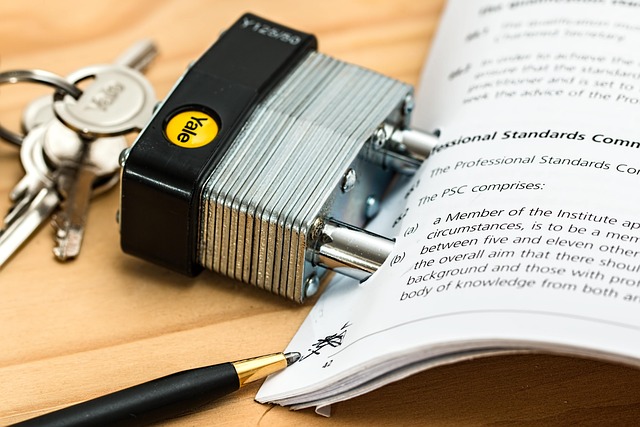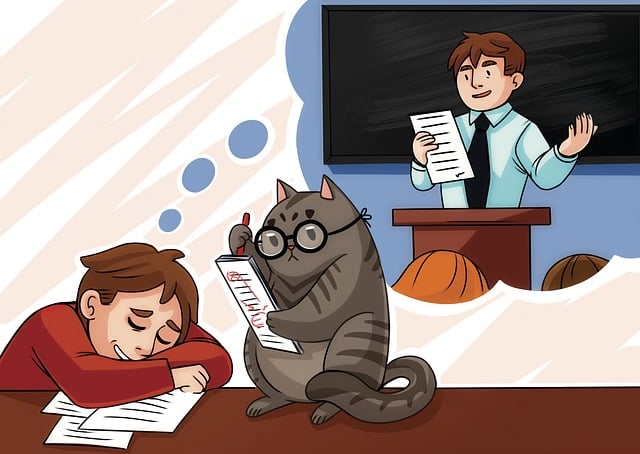Moving into a new college apartment comes with complex student rental agreements. To ensure a smooth experience, students should understand key lease clauses covered in these agreements, such as rent, deposits, maintenance, guests, pets, dispute resolution, and termination. A student lease guide provides essential knowledge about these rental contract terms, helping students make informed decisions and confidently navigate their new living situation. By familiarizing themselves with lease terms explained, students can protect their rights, avoid conflicts, and maintain a peaceful home environment.
Navigating college life often involves a new level of independence—and for many, that includes renting an off-campus apartment. This comprehensive student lease guide is designed to demystify the process and empower you with knowledge. From understanding crucial lease terms explained in simple language to navigating different types of student rental agreements and deciphering lease clauses, this guide covers all aspects of your first (or next) rental experience. By familiarizing yourself with these key elements, you’ll be better equipped to manage expectations and ensure a smooth transition into your new living situation.
- Lease Terms Explained: A Student's Perspective
- – Define key lease terms and their significance for students
- Types of Student Rental Agreements
- – Discuss different types of agreements (e.g., fixed-term, month-to-month) and their pros/cons
- Understanding Common Lease Clauses for Students
- – Break down essential clauses like rent amount, payment due dates, late fees, and security deposits
Lease Terms Explained: A Student's Perspective

As a college student moving into a new apartment, navigating lease terms can seem daunting. But understanding your rental agreement is crucial for a smooth living experience. Student rental agreements often include various clauses and conditions that might sound intimidating at first glance. However, breaking down these lease terms explained in simple language is key to knowing your rights and responsibilities.
Lease clauses students should pay special attention to include rent amount and due dates, security deposits, payment methods accepted, maintenance expectations, and rules regarding guests or pets. Additionally, be sure to read through sections detailing termination policies, subletting restrictions, and the process for handling disputes. A student lease guide can serve as a valuable tool, offering clarity on these rental contract terms so you feel prepared and empowered in your new living situation.
– Define key lease terms and their significance for students

When it comes to renting an apartment or home while attending college, students often find themselves navigating a complex web of lease terms and conditions. Understanding these rental contract terms is crucial for ensuring a smooth living experience and avoiding potential pitfalls. Key lease terms like ‘lease period’, ‘rent amount’, and ‘deposit’ are fundamental elements every student should grasp. The lease period determines the duration of your stay at a property, while rent represents the financial obligation you incur for occupying space. Both these aspects directly impact your budgeting and planning.
Additionally, students must familiarize themselves with lease clauses related to maintenance, repairs, and security deposits. Maintenance and repairs cover the responsibilities of keeping the living space in good condition, which is essential for any student looking to protect their deposit and maintain a comfortable environment. Security deposits, on the other hand, are a measure taken by landlords to safeguard against potential damage or unpaid rent. Knowing what these terms entail empowers students to make informed decisions when signing rental agreements, ensuring they understand their rights and obligations throughout their tenancy.
Types of Student Rental Agreements

Student rental agreements come in various forms, each with its own set of lease terms explained. Understanding these different types is crucial for any college student looking to rent housing. One common type is the fixed-term lease, which typically lasts for a specific number of months, offering stability and predictability. This is ideal for students planning to stay in one place throughout their academic year.
Another option is the month-to-month lease, providing more flexibility but also less security. Students on a budget or those with uncertain plans might prefer this arrangement. Additionally, some agreements include specific clauses tailored to student needs, such as allowing subletting during summer breaks or accommodating pet ownership under certain conditions. A comprehensive student lease guide should outline these terms and ensure students are well-versed in their rental contract responsibilities.
– Discuss different types of agreements (e.g., fixed-term, month-to-month) and their pros/cons

When it comes to renting a place while studying, students often encounter various types of rental agreements. One common option is the fixed-term lease, which typically lasts for a specific period, such as one or two academic years. The main advantage here is the stability it offers, providing students with a secure residence for their entire study period. It also makes budgeting easier, as the rent is fixed and known in advance. However, there’s less flexibility to adjust the terms if a student’s plans change, like extending their stay or subletting during breaks.
On the other hand, month-to-month agreements offer more adaptability. They don’t tie students to a specific duration, allowing for easier transitions between academic years or if personal circumstances shift. Yet, this flexibility comes with less predictability in rent costs as they can vary each month. It’s crucial for students to understand these lease terms explained, especially the renewal processes and potential increases in rental contract terms. A comprehensive student rental agreements guide should cover these aspects to ensure a smooth living experience.
Understanding Common Lease Clauses for Students

When it comes to student rental agreements, knowing the various lease clauses is essential for navigating your housing options effectively. As a student, understanding these terms can help ensure a smooth living experience and protect your rights. Common lease clauses include provisions related to rent amount and payment deadlines, which are typically clearly outlined. You’ll also find details about security deposits, how and when they’re returned, and any restrictions or penalties for late payments or damages.
The student lease guide should cover maintenance responsibilities—who is responsible for what types of repairs—and procedures for addressing maintenance issues. It might also include clauses regarding subletting, which governs whether and under what conditions you can let someone else live in your space during your tenancy. Additionally, look for terms related to occupancy limits, pet policies, and any specific rules about parties or noise levels to ensure a peaceful living environment.
– Break down essential clauses like rent amount, payment due dates, late fees, and security deposits

When it comes to student rental agreements, understanding lease terms explained is crucial for a smooth living experience. A typical student lease guide will include several key clauses that students should familiarize themselves with before signing on the dotted line. The first essential aspect to consider in any rental contract terms is the rent amount and its payment due dates. Knowing when and how much rent is expected each month helps students budget accordingly. Late fees, another critical clause, detail the consequences of missing a payment deadline, providing clarity to avoid financial penalties.
Security deposits also play a significant role in student lease agreements. These refundable amounts are usually required to cover any potential damages to the property. By understanding these lease clauses students can ensure they’re protected and prepared for any unforeseen circumstances that might arise during their tenancy.






